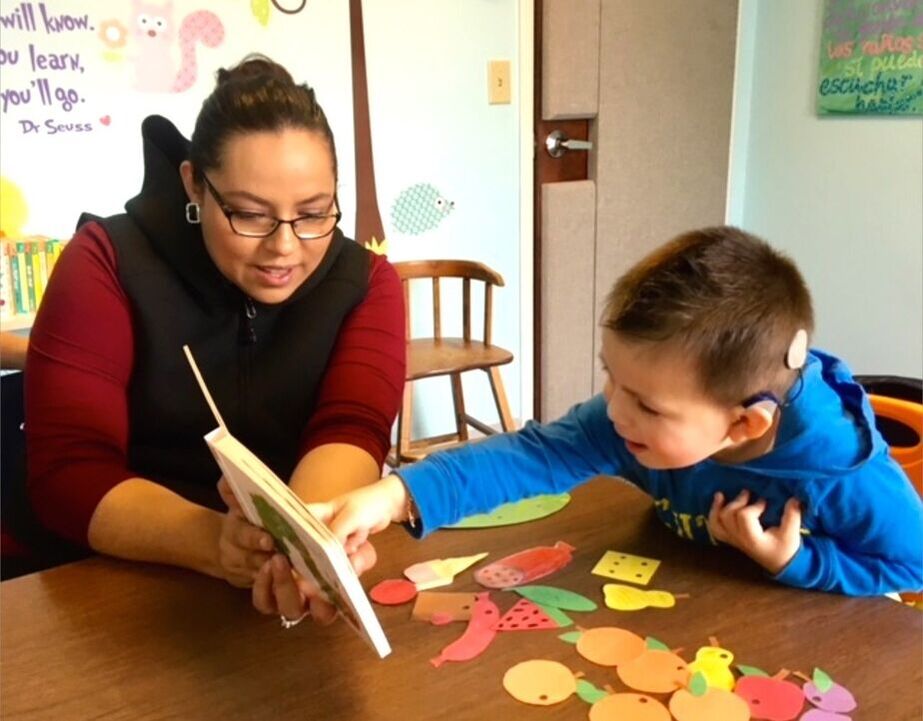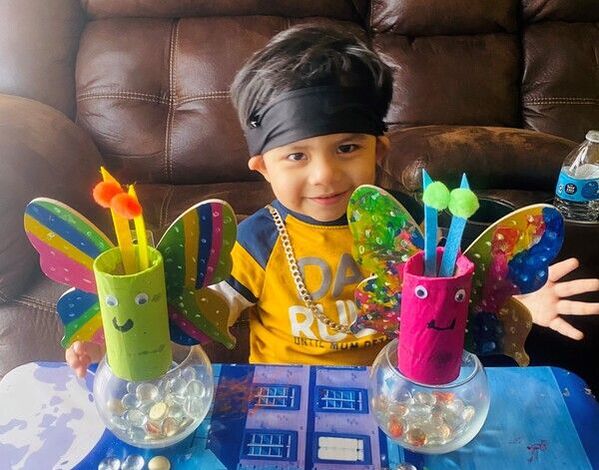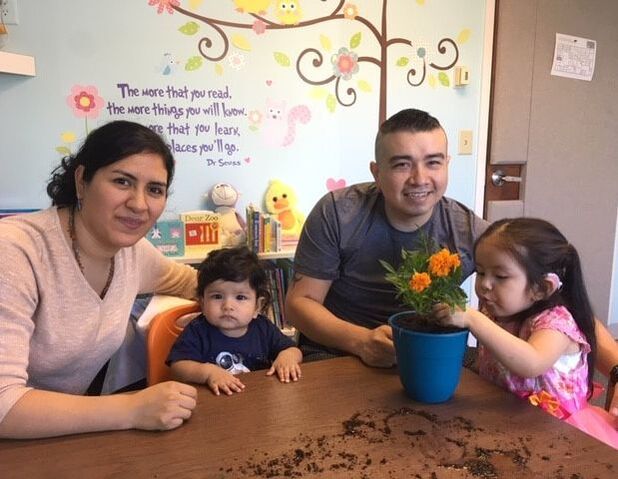Auditory-Verbal Therapy for Spanish Speaking Children
Why do we provide AV therapy in Spanish?An increasing body of research indicates that children with hearing loss can learn multiple spoken languages. Moreover, learning the language of the home (such as Spanish) does not impede acquisition of English but rather can accelerate it. Encouraging development of the home language also facilitates family involvement and maintains the family-child bond. Caregivers play an essential role in teaching spoken language to children with hearing loss and are largely responsible for the growth and development of a child’s listening and spoken language skills.
Due to the rising number of children with hearing loss being identified from Spanish-speaking homes, there is an ever-increasing need to provide effective intervention to these families and facilitate optimal carryover in the home. As such, the Auditory Verbal Center, Inc. has made a commitment to serving our community’s Spanish-speaking families through bilingual Spanish-speaking therapists who can provide AV therapy directly in Spanish, without the need for an interpreter: |
Myths about bilingualismIn the past the belief had been that it was hard enough for a deaf or hard-of-hearing child to learn one spoken language, why would we try to teach two? The logic was that it would be better to reduce to one language to increase that child’s success with English. However, research actually indicates the opposite. When therapy is provided in the family’s home language, there are improved language outcomes. Families can provide much more linguistic input in their native language and so children are exposed to more language at home when families are encouraged to speak their native language. There are many myths and false beliefs surrounding bilingualism, especially bilingualism for children with hearing loss, or other etiologies of communication delays. Watch this 8 minutes video interview with Brenda K. Gorman, Ph.D on Myths about bilingualism in general. There are many myths and misconceptions even for children with normal hearing and no communication delays. After busting some myths about bilingualism for children with normal hearing/language, the next step is to consider how children with disabilities and communication delays are impacted by dual language learning. Watch this 7-minute video with Kathryn Kohnert, PhD, CCC-SLP, to find out more: Can children with disabilities learn two languages? Furthermore, here are a few articles specific to children with hearing loss and the effects of dual language support on the English language skills of bilingual children with cochlear implants and hearing aids:
"The effects of dual-language support on the language skills of bilingual children with hearing loss who use listening devices relative to their monolingual peers" "Dual language versus English only support for bilingual children with hearing loss who use cochlear implants and hearing aids" For further references to research, please contact us! |
Hear from some of our AVC families:
In addition to the research perspective, there is the very real emotional aspect behind supporting a family in teaching their child their native language. At AVC we always follow evidence-based practice and additionally consider the human and cultural aspect of language. Below are two videos of real AVC families sharing their experiences:
|
CHRISTOPHER
First, Christopher's mother discusses why it was so important to her that her son learn to speak Spanish, which is truly the language of the heart and home for this family. |
MATEO
While Mateo’s mother is fully bilingual and can communicate easily in English, it was still critical to her that Mateo become bilingual. Listen to find out why! |
Beyond translation:
To provide effective intervention in Spanish, it is necessary to truly adapt therapy, not just translate it. At AVC we have created resources to truly adapt Learning to Listen sounds, function words, songs and rhymes, books, and music to be linguistically and culturally relevant for the Spanish-speaking families we serve. These resources are available to all of our AVC families and have been shared at numerous conferences where we have presented both nationally and internationally on this topic. Please contact us directly to receive a free copy of these adapted resources.
Here are some video clips of real therapy sessions:
Here are some video clips of real therapy sessions:
|
Watch this video for examples of some of these songs in real AV therapy sessions with families!
|
This video shows how Learning to Listen sounds are adapted (and also how there can be significant dialectal variation).
|
|
|
|
|
This video demonstrates how the popular music program BabyBeats can be adapted for Spanish-speaking families.
|
This video shows how music that is culturally relevant to families can also be included in AV therapy sessions.
|










